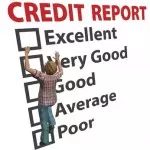Credit Score Tips
Short-selling your home may be a way to lift a financial burden off your shoulders and the credit effects of a short-sale are definitely negative, but they can be corrected. When repairing your credit there are five factors to consider:Payment history, amounts owed, length of credit history, new credit and, types of credit used. After a short-sale the majority of owners suffer from very low credit scores and need to come up with a plan to get better ratings. Here,Christian Alvarez with Samuel Scott Financial Group, will look at the five factors that make up a FICO score and share his expert tips for fixing bad credit.
Payment History Tips: Pay your bills on time. Delinquent payments and/or collections have a negative impact on your FICO score. Get current and stay current with any missed payments because the longer you pay your bills on time after you have missed payments your FICO score should increase. But also be aware that paying off a collection amount will not immediately remove it from your credit report, it will stay on your report for seven years. If you are still having trouble making ends meet, contact your financial advisor or credit counselor to assist in repairing your FICO score.
Amounts Owed Tips: Keep balances low on credit cards because high outstanding balances can hurt your credit score. Pay off debt rather than moving it around. The most effective way to improve your credit score is by paying down your revolving credit card debt. Don’t open a number of new credit cards just to increase your credit limit, this approach can backfire and actually hurt you more.

Length of Credit History Tips: If you have been managing your credit for a short time, don’t open a lot of new accounts too rapidly. New accounts will lower your average account age and will have a larger effect on your score if you don’t have a lot of other credit information.
New Credit Tips: Do your rate shopping for a given loan within a focused period of time. FICO scores distinguish between a search for a single loan and a search for many new credit lines, in part by the length of time over which inquiries occur. Open new accounts responsibly and paying them off on time will raise your score. Also note that it’s OK to request and check your own credit score as long as you are requesting it from the credit reporting agency or through an organization authorized to provide credit reports to consumers.
Types of Credit Use Tips: Don’t open accounts just to have a better credit mix, it will hurt you rather than help you. Have credit cards but manage them responsibly. In general, having credit cards and installment loans will rebuild your credit (as long as you are paying them in a timely manner). Someone with no history of credit cards tends to hold a higher risk than someone who has managed credit cards responsibly.
In conclusion, “fixing” your credit score is more about fixing errors in your credit history and then following these guidelines to maintain good credit history. Raising your score after a poor mark on your report will require patience and discipline and will not happen over night.
Contributed by Christian Alvarez at Samuel Scott Financial Group.
